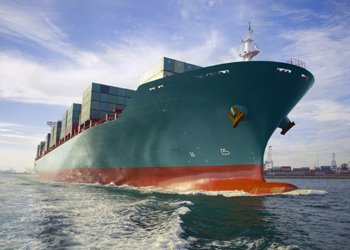Mention nuclear power and ships in the same sentence and you’re more likely to think Navy submarine than a goods tanker. But nuclear-propelled ships are one idea being mulled over by engineers this week as the future of low carbon shipping.
Shipping accounts for around one billion tonnes of the world’s emissions every year, 3% of the world’s total according to the EU and this is set to grow.
Some researchers are already looking into developing new energy efficient ships.
Now the Royal Academy of Engineering has declared that the shipping industry needs to develop greener ways to power their vessels.
After running a survey of current and future marine technology, a working party of more than 20 engineers found shipping has “great potential” to slash its environmental impact with new and modified propulsion technologies.
They measured existing and possible new power sources against two objectives: energy efficiency and environmental sustainability.
The report called ‘Future Ship Powering Options: Exploring alternative methods of ship propulsion’ found in the short term liquid natural gas (LNG) could be cheaper than the current favourite, diesel, if better global infrastructure could be built.
As for nuclear power, merchant ships would need significant changes in design, building and operational methods and would most likely be useful as an “auxiliary power source”.
Biofuels and synthetic fuels were put forward could directly replace current fuels adds the report but there could be issues with storage and handling on top of environmental concerns with the fuels.
However the green answer won’t come from a single technology which can be applied to every type of ship.
John Carlton, Professor of Marine Engineering at City University London who led the research said: “We know that larger ships are more carbon-efficient than smaller ships and that slower ship speeds effectively reduce emissions. But fitting smaller engines in large ships may increase the risk of being under-powered in bad weather.”
Captains could hold the key in some cases, he suggested: “Often there is significant benefit in simple operational measures: good seamanship in steering around bad weather for instance, or good housekeeping in minimising on-board energy consumption.”





